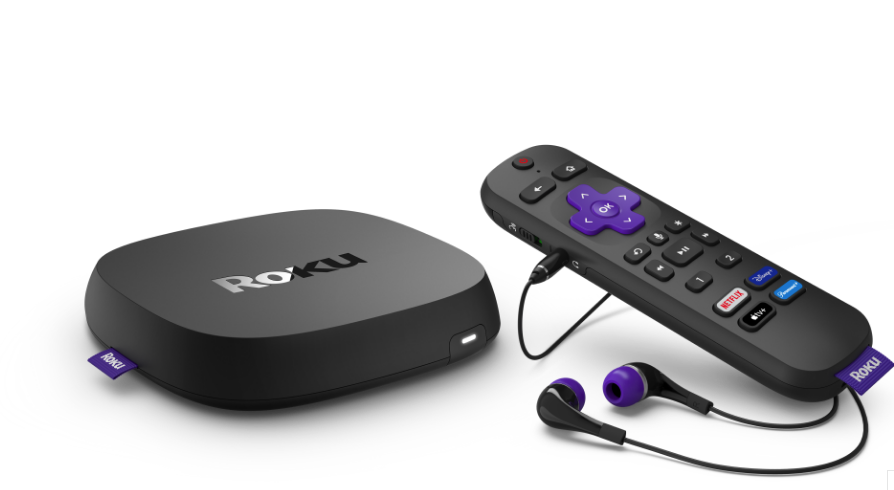Have Tech, Will Travel
In spite of rising inflation and falling 401Ks, consumers are pushing ahead with travel plans — at least for this summer. To make vacations work — and to work during vacations — many will also be looking for tech that will make that economy flight a little more comfortable and that Airbnb a little more like home.
Laptop computers, wireless earbuds with active noise cancellation, and smartphone accessories will continue to lead the travel tech pack, according to analysts and consumer electronics companies.
While inflation continues to erode consumer confidence, according to a recent Tripadvisor global survey, 4 out of 10 respondents plan to go ahead with travel plans. Furthermore, air travel numbers continue to approach rates not seen since before the pandemic. On a weekday in June 2022, for example, the TSA logged 2.4 million passengers compared 2.7 million on the same day back in 2019, a sign some take to show things are getting back to normal.
To make sure they can still afford to travel, respondents in the Tripadvisor survey said that they will cut back in other areas such as dining out and clothing purchase to compensate for rising prices. So the pent up desire for travel appears to be overcoming other budgetary fears.
“But with inflation looming, consumers are still looking for bargains on discretionary tech purchases,” emphasizes Avi Greengart, founder and lead analyst at Techsponential, a technology research firm.
ADVERTISEMENT
Lisa Emard, director of media relations at Acer America, agrees and notes that shoppers and travelers are looking for value: “Due to supply chain issues and the lingering effects of the pandemic, customers are more thoughtful about purchases and are doing research to ensure they’re purchasing high-quality, reliable products they’ll enjoy using for a more substantial amount of time.”
For Zooming back into the office or streaming Disney+ at the cottage, travelers still want lighter more portable laptops, but with increased performance and sharper OLED screens. “The combination of thin-and-light designs paired with performance processing and dedicated graphics means they can be used for gaming, as well as school and professional work,” said Emard.
To save accommodation costs, more travelers are booking through sites like Airbnb, and since those rentals don’t usually offer all the entertainment options of a traditional hotel, many people are looking for tech solutions. Roku’s Streaming Stick 4K ($39.99), for example, is a popular device for bringing streaming video and music services from home on people’s peregrinations. It plugs into an HDMI port on any TV but retains the owner’s security and privacy because the traveler doesn’t have to enter login and password information on a stranger’s Airbnb TV
To help make sure that getting there is half the fun — rather than half the hassle — Greengart says the tech travel categories to watch are bag and luggage trackers, such as Tile Mate (starting at $25) and Apple AirTags (starting at $29), and active noise canceling (ANC) headphones.
“ANC used to be reserved for premium over-the-ear headphones, but can now be found in more affordable wireless earbuds as well,” said Greengart. Models like Jabra’s Elite 7 Pro earbuds, for example, offer better sound quality and comfort than Apple’s Airpods (3rd generation) for less money ($160 vs. $179).

Eco tourism has transitioned to sustainable tourism, with destinations like Switzerland offering electric car tours and even an e-bike tour of the lake region around Lucerne. The trend has also all but created popular brands, such as Klean Kanteen, which in addition to water bottles makes a stainless steel, leakproof Food Box set ($64.95) to carry food onboard for those flights that only offer protein bars and cookies. Meanwhile, newer sustainable brands like Zealios have emerged with products like Sun Barrier Reef-Safe sunscreen ($18) to meet the environmental rules at destinations like Hawaii.
But eco also means economy these days. As travelers get back out there, according to the Tripadvisor survey, they say they want to do it in more sustainable ways but aren’t willing to pay more to do so: six in 10 of those surveyed say they won’t spend more for eco-friendly options.
“Sustainability is an important part of a brand’s value, especially with younger consumers. However, consumers are not yet basing tech buying decisions primarily on specific eco-friendly practices,” concurs Greengart. But he notes that “sustainability is an important part of a brand’s value, especially with younger consumers.” So highlighting ecological or climate friendly practices or features may tip a buying decision in favor of one product over another.
“Customers want eco-minded options that reduce their ecological footprint,” said Acer’s Emard, adding that Acer’s Aspire Vero laptops use 30 percent post-consumer recycled plastic in the chassis and bezel.
Still, there’s a category of tech products that may continue to be virtually inflation-proof: smartphone accessories, such as chargers and cables. “A big trend that continues to expand is power–the OtterBox power category has seen tons of growth over the last year,” said OtterBox spokesperson Kianna Noonan. Chargers and cables are more of a necessity rather than a discretionary purchase, but Noonan says Otterbox’s protective phone cases are also continuing to do well. “Protecting an investment such as a phone is something that people must consider now more than ever,” she added.

Will the travel trend hold up and buck the forces of inflation? According to a survey of 4,000 U.S. consumers by Destination Analysts, a travel and tourism market research firm, 86 percent of respondents said they plan to travel in the next 12 months. But whether those numbers hold up may depend on whether or not the rate of inflation can be brought under control.
In the meantime, it’s more important than ever for retailers to keep one eye on travel trends and one eye on back-to-school buying, according to Acer’s Emard. She says retailers need to be able to reposition some electronics as we go from summer vacations into fall classes and a return to offices. In other words, today’s traveling laptop is tomorrow’s hybrid work computer.

